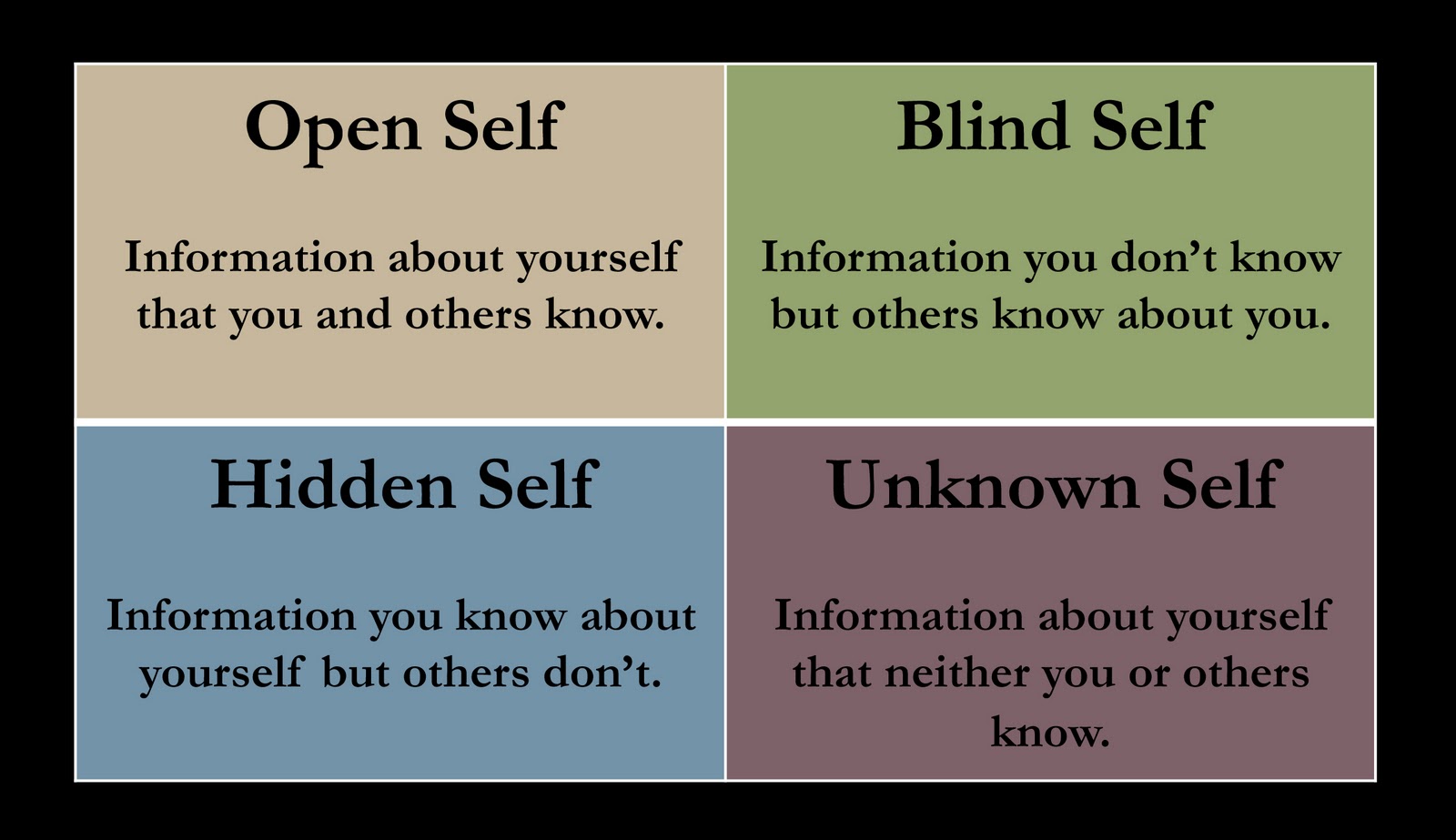
Binu 's BLOGS
JOHARI WINDOW
Published: Apr 24th, 2021 12:32 pmJOHARI WINDOW The Johari Window model is a simple and useful tool for illustrating and improving self-awareness, and mutual understanding between individuals within a group.
The Johari
Window model can also be used to assess and improve a group's relationship with
other groups.
Influence
Today the Johari Window model is especially
relevant due to modern emphasis on, and influence of
• soft skills • behaviour • empathy • cooperation •
inter-group development • interpersonal development.
The Johari
Window actually represents information - feelings, experience, views,
attitudes, skills, intentions, motivation, etc within or about a person - in
relation to their group, from four perspectives.
The four Johari Window perspectives are called
'regions' or 'areas' or 'quadrants'.
.
1. What is known by the person about him/herself and is also known by
others - open area, open self, free area, free self, or 'the arena‘.
2. what is unknown by the person about him/herself
but which others know - blind area, blind self, or 'blindspot‘.
3. what the person knows about him/herself that
others do not know - hidden area, hidden self, avoided area, avoided self or
'facade‘.
4. what is unknown by the person about him/herself
and is also unknown by others - unknown area or unknown self.
1 Johari region 1 is also known as the 'area of
free activity'. This is the information about the person - behaviour, attitude,
feelings, emotion, knowledge, experience, skills, views, etc known by the
person ('the self') and known by the group ('others').
Johari quadrant 2 Johari region 2 is what is known about a
person by others in the group, but is unknown by the person him/herself
Johari quadrant 3 • what is known to ourselves but
kept hidden from, and therefore unknown to others..
Johari quadrant 4 • It contains information,
feelings, talent abilities, aptitudes, experiences etc, that are unknown to the
person him/herself and unknown to others in the group.
Drawbacks of Johari window • Some thing are perhaps
better not to Communicated (like mental or health problem) • Some people may
pass on the information they received further then we desire. • Some people may
react negatively.
Using johari
window is useless exercise if it is not linked to the activities that reinforce
positive behavior or that correct negative behavior. • Some cultures have a
very open and accepting approach to feedback and others do not. • Some people
take personal feedback offensively

Comments
Add Comment